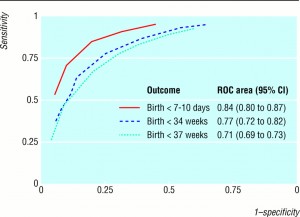The effects of corticosteroids on fibronectin expression were found to be dose dependent. This is not unexpected, but it is considered an important observation in view of the work of Vanacker and colleagues, who showed that, despite inhibition of the initial increase in airway hyperresponsiveness with mild-to-moderate doses of corticosteroids, tissue remodeling progressed. In the same study, Vanacker et al found that higher doses of corticosteroids were definitely needed to inhibit tissue remodeling, which, in turn, had important consequences on clinical symptoms. Thus, corticosteroid doses higher than those needed to control inflammation appear to be required to significantly impact tissue remodeling. This suggests that, in the clinical arena, it might be beneficial to determine optimal doses of corticosteroids based on markers of tissue remodeling rather than based exclusively on markers of inflammation. Of course, much work is needed to identify sensitive and easily accessible markers of lung tissue remodeling. 
The recognition that corticosteroids may impact fibronectin expression directly is important because the reduction in fibronectin noted in airway walls after FP treatment could be ascribed to inhibition of plasma leakage. Since fibronectin is abundant in plasma, inhibition of plasma leakage could explain the reduction in fibronectin tissue deposition. However, our data suggest that corticosteroids can also inhibit fibronectin expression in lung fibroblasts; therefore, we believe that this is likely to be a more important mechanism in the setting of tobacco-related disease.
This study also suggests that corticosteroids affect matrix gene expression by specifically inhibiting the activities of specific transcription factors. The effects of corticosteroids on other transcription factors (eg, sequestration of nuclear factor-kB and activator protein [AP]) have been documented before, and this mechanism has been used to explain the inhibitory effects of corticosteroids on genes encoding for cell adhesion (eg, vascular cell adhesion molecule) and proinflammatory molecules (eg, cytokines). However, these transcription factors may also affect genes involved in connective tissue remodeling. For example, activator protein is considered an important modulator of the expression of matrix metalloproteinase (MMP) and other MMPs that have been implicated in the pathogenesis of asthma and COPD.